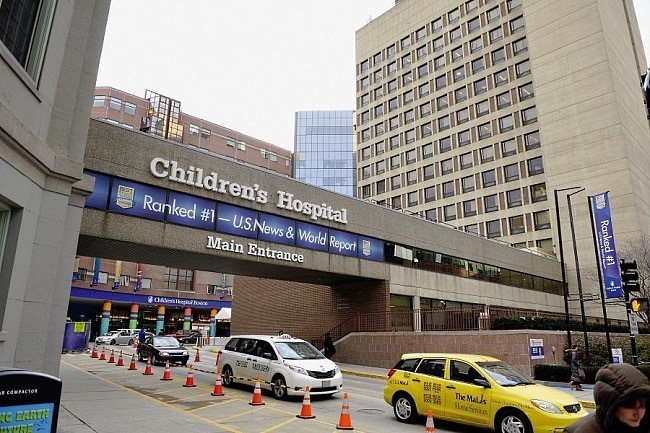IBM Watson will help treat children with rare diseases

IBM has provided Boston Children's Hospital access to the IBM Watson cognitive platform. This was done in order to help physicians localize rare types of diseases in children and determine possible methods for their treatment. At the first stage, Watson will deal with various kidney diseases. To do this, the system is already analyzing the huge databases of scientific literature and databases of medical diseases that are located in the Watson Health Cloud cloud system.
The initial goal is to compare genetic mutations with diseases, which may ease the task of establishing a diagnosis and finding the necessary treatment for doctors. Despite the fact that the diseases in question are quite rare, more than 350 million people around the world suffer from them. And 50% of patients are children. Some of them, unfortunately, die before making an accurate diagnosis. There are several reasons, and the main one - only a small fraction of the doctors have the experience and knowledge necessary for making the correct diagnosis.
Now IBM Watson is already engaged in the study of medical literature, which is related to nephrology, that is, kidney disease. After the study of the actual material is completed, the cognitive system will deal with the processing of data on mutations that occur in the so-called steroid-resistant nephrotic syndrome (SRNS).
')
As a result, experts plan to create a system that can help doctors interpret the genome sequence data for each small patient in the hospital, while simultaneously comparing this data with those already found in the medical literature.
“Many families around the world face this problem - diseases that are almost impossible to diagnose. But Watson, with his cognitive abilities, will help analyze the case histories of each patient by comparing the genome of such a person with data from medical literature, ”said Christopher Walsh, director of the genetics and genomics department at Boston Children's Hospital.
Collaboration with the Boston Hospital is only the first step, because now any hospital with access to the Network has the potential to work with the Watson platform. IBM, realizing the importance of such work, collaborates with the most well-known oncological centers. Now the cognitive platform is used in 16 different cancer centers and institutes involved in the analysis and identification of patient genome data. On the basis of the information received, oncologists are developing new methods of treatment. All new hospitals and research centers are gradually joining the IBM collaboration program with oncology institutions.
An example of such collaboration is IBM’s work with the Manipal Hospitals network under the “Watson for Oncology" program. Currently, the IBM Watson platform has studied more than 15 million medical documentation pages, including 200 textbooks and 300 periodicals.
Working with the IBM Watson cognitive system, physicians will be able to search for individual treatment methods for each hospital patient. To increase the likelihood of successful treatment, a study of the patient's genome data is used, which makes it possible to make the most effective use of the patient’s body to treat cancer.
In addition to oncology, Watson is now busy in other areas of medicine. For example, CVS Health has teamed up with IBM to develop technology to predict the likelihood of diabetes and a few other chronic diseases in a single person. This project is actively involved in the capabilities of the IBM Watson cognitive system.
So IBM Watson will collect patient data from their medical records. The cognitive system will analyze medical records, recipes and data from fitness gadgets, as well as collect information that will help you make a correct prediction and conduct individual consultation with a specific person. At the same time, IBM Watson will predict not only the likelihood of diabetes, but also such chronic diseases as hypertension and obesity.
Source: https://habr.com/ru/post/273835/
All Articles